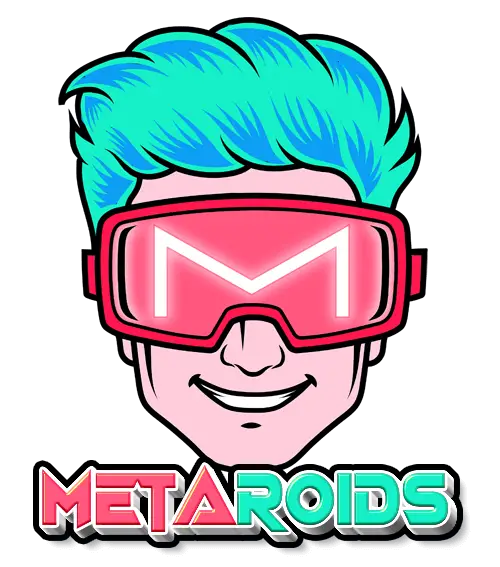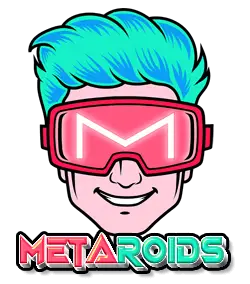Innovative technologies have enhanced our education system over the past years. From online enrollments for schools to online education systems like Khan Academy and Coursera. Now it’s time for blockchain and education.
The global education industry is roughly over $4 trillion. It is projected to grow to $10 trillion by 2030. So the trillion-dollar question is, should we “put” education systems on a blockchain?
Absolutely!
Blockchain enables educational institutions to operate faster, smoother, and with less manpower. It also prevents fake diplomas and incentivizes students to perform better.
If you’re someone who plans to create a blockchain project with applications in the education sector, be sure to finish this article as I’m giving out FREE ideas.
Don’t forget to give me $1M if you successfully raise an IEO or STO.
Education, as we know it today, has so many pain points that aren’t being addressed enough. Most of them can be resolved by blockchain technology.
Let’s explore the applications of blockchain in education then.
Blockchain Applications in Education
Automation
Pain point: Manual Labor
The majority of the schools and universities, especially in emerging market economies, follow manual procedures in their day-to-day activities.
For one thing, enrollment processes usually involve long lines, multiple signatures from different departments, manual processing of requirements like IDs and other school certificates, and many more measures that take longer than necessary.
Traditional education is overly concerned with the procedure at the expense of efficiency, and even common sense.
After all, we are living in an era when most processes can be automated online, even more so with the development of blockchain technology.
So how can blockchain help education in this case?
Solution: Smart Contracts
Well, blockchain has an extension called smart contracts that allow us to remove unnecessary manual labor and automate processes.
You could think of a smart contract as a vending machine while manual labor could be a beverage stall.
To buy a soda in a beverage stall, you need to fall in line first. Once it’s your turn, you pick your favorite soda, tell the merchant, then hand over your payment.
After which, the merchant calculates the change you ought to receive, and then hands it to you along with your selected soda.
But with a vending machine, you simply insert your paper bills or coins, press a button, and take your soda and change immediately.
That’s what smart contracts do. They remove unnecessary manual labor and allow things to proceed faster and smoother.
This technology has tremendous benefits for the education sector as well.
Through blockchain technology, we can enable online authentication for students. This saves them from manually proving their identity every time they want something done. Like for instance, enroll in a class.
If a student only needs to authenticate once, then it would save him a lot of hassle.
Instead of lingering through long lines and several signatures, how about we accomplish the same goal but with one tap to an NFC device? Blockchain can make that possible.
Certificate Validation
Fake diplomas are more common than one might think.
These days it’s so easy to get a fake PhD certificate, or other degrees for that matter, both online and offline. A quick google search will lead you to one site called PhonyDiploma.

According to experts, the fake diploma industry is worth over a billion dollars. This means that we are putting our well-being at risk in the hands of engineers, nurses, counselors, and other professionals with fraudulent credentials.
But that’s not the only damage here. These imposters are tarnishing the reputation of universities that are giving worthwhile education to students. These imposters pretend to represent these schools despite the fact that they are truly uneducated and untrained.
Furthermore, they devalue legitimate degrees that students and parents worked hard for several years.
But if we take advantage of blockchain, we could guarantee the authenticity of degrees since they will be stored in a decentralized and immutable database.
Blockchain certificates are verifiable, tamper-proof, and fake-proof.
We should set a new standard: Only blockchain diplomas are valid! I rest my case. 🙂
Incentivizes
Student absenteeism has always been a burden to both schools and parents, even more so today. After all, there are more distractions in modern living.
The internet has enhanced our daily lives without a doubt, but it also brought its fair share of drawbacks.
Pain Point: Student Lethargy
Several studies have proved that social media, in particular, has shortened our attention spans. Apparently, this has terrible consequences for students.
Instead of spending their time with long hours of study, which is necessary for academic excellence, they’d rather chat with their friends, scroll through their Facebook newsfeed, or watch some prank videos on YouTube.
Now let me be clear, I am no advocate of traditional education systems. In fact, I hate the way they educate; forcing students to memorize vague and abstract concepts as if that’s the only way to learn.
It’s not even the best way, to be honest.
But, I do believe that it would be in a student’s best interest to strive. Hopefully the education system will be much better this time around. Not the same sh?tfest I had growing up.
Now, student behaviors like these do pose a problem, but we don’t solve it by killing social media. That’s impossible. But we could get to the root of what makes this system so addictive, and perhaps, use it to our advantage.
Solution: Gamify Learning
Neuroscientists have studied the effects of social media on the brain and it turns out that social media notifications (like someone liking your picture) trigger a chemical reaction that gives you this “good feeling” that keeps you craving more.
This is the result of our brain’s dopamine reward system. Now that’s not a difficult thing to copy.
Through blockchain, we can also create a reward system that could incentivize students to perform well in their studies.
We could create an application that allows students to see how well they are performing in real-time, as shown in their dashboard as soon as they enter the gates of their university, and gain rewards as long they finish their allotted time required for their course.
Now, people are fascinated with growing numbers. It might have something to do with a positive feedback loop. They do something, then they are rewarded, so they do it again.
If a student’s rewards keep growing proportional to his performance in school, that would be a good incentive for him to do better in academics.
This would work only if there is an application that which he could view the rewards in real-time. That’s easy to create with blockchain.
We could also take this further by building a community around this Dapp, allowing students from different universities to compete for the top spot in a particular city, region, or country.
We could arrange for the winners to be displayed in a leaderboard section of the Dapp.
The social aspect of this alone could motivate students to strive harder, as those with the highest honors could land in the spotlight, affording them future career opportunities for companies affiliated with the Dapp’s token economy.
Not to mention it will make them more popular among other students. You know how popularity is such a big deal in school. *Rolls eyes*
With all these incentives, we could potentially redirect students’ attention toward their academic activities.
The Takeaway
All things considered, it is safe to assume that blockchain technology can astronomically enhance education.
I wonder if you could be the guy to build a decentralized ecosystem that will transcend the current education system into a blockchain-based platform.
With blockchain, we shall take educational institutions to the next level.
Join our newsletter as we build a community of AI and web3 pioneers.
The next 3-5 years is when new industry titans will emerge, and we want you to be one of them.
Benefits include:
- Receive updates on the most significant trends
- Receive crucial insights that will help you stay ahead in the tech world
- The chance to be part of our OG community, which will have exclusive membership perks



